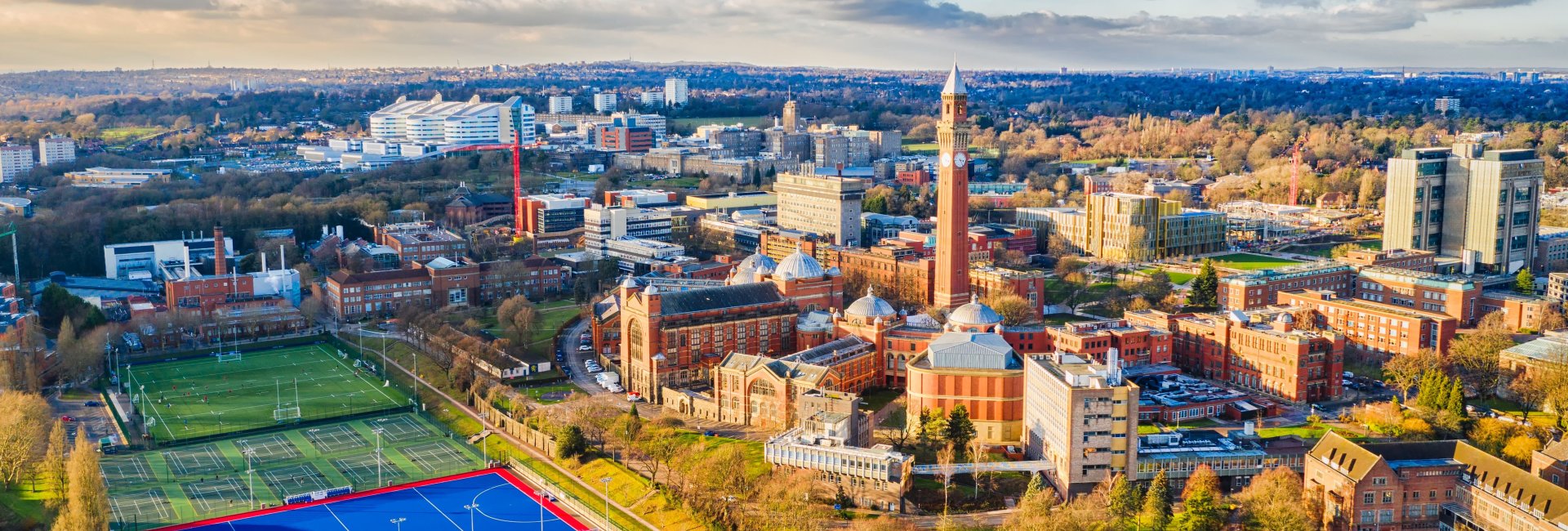University of Birmingham - Undergraduate Open Day
27 Jun 2025, 09:00
Birmingham

Develop your career as a professional translator through our flexible and industry ready MA in Translation Studies. Join our global community of translators to discover the art of translation at one of the world’s top 100 Modern Languages departments.
The global Language Services industry is growing at an impressive rate; two of the top five providers, SDL and RWS, are based in the United Kingdom, and there are many large- and medium-sized providers headquartered in the US, Europe and Asia. Wherever you are based, there is no better time to enter the industry and our innovative MA is ideal for those looking to embark on, or develop, careers as professional translators.
Our programme is designed to cover most of the list of competences required by professional translators published in 2022 by the European Master’s in Translation network. We work closely with translation agencies, freelancers and other stakeholders to ensure that our syllabus prepares you for professional employment in the growing translator industry. You will have the option to take Professional Development and Project Management modules which have been designed to enable you to develop the skills to stand out as you embark upon a career in translation. As part of our links with industry we also offer talks from professionals and mentoring, as well as advertising internship opportunities.
Translation practice is at the heart of the programme, and you will undertake extensive practical and specialised translation in your chosen language pair(s). We also offer training in state-of-the-art translation technology and the opportunity to study another foreign language at beginners, intermediate or advanced level. The MA also provides excellent preparation for further study at PhD level.
The programme is available to students who are proficient in English and one of the following languages: Arabic, Catalan, Chinese, French, German, Greek, Italian, Spanish, Portuguese or Russian. The industry standard is for translators to work into their mother tongue: we can accommodate all language pairs in both directions except Mandarin, where we offer English to Mandarin but not Mandarin to English.
We are a member of the Institute of Translation and Interpreting (ITI) and of the Association of Programmes in Translation and Interpreting Studies, UK and Ireland. We are also part of the SDL University Partner Program, which allows us to allocate SDL Studio Freelance licences to our students for the duration of their studies and to award a free license to the top two students studying translation technology each academic year for use after they graduate.
You will study four core modules: Theoretical and Analytical Skills; Translating for Business; Translation Technology; Specialised Translation.
You will also choose two optional modules from a range that may include:
Multimodal Translation; Professional Development; Contemporary Translation Theory; Languages for All.
In addition to your taught modules, you will complete a 15,000-word project, which can take one of three forms:
Traditional written dissertation: a substantial piece of independent research totalling 15,000 words.
Extended translation project: you will translate a 7,500-word text of your choice, drawing on appropriate theories, methodologies and approaches to the translation of different text-type and genres, reflecting on issues such as target audience and function, and using a range of translation resources. You will also write a 7,500-word commentary on the text.

Learn what it's like to study at University of Birmingham. From key stats to campus highlights, open days, and more - find everything you need to know here.
The language into which you intend to translate should be the language in which you have mother tongue competence, or alternatively your language of habitual use. In the latter case, you may be asked to provide evidence of proficiency.
It will normally be necessary to have training to degree level in the language(s) from which you intend to translate. If you do not hold a degree in your ‘second’ language, you may be asked to provide other evidence of proficiency.
International applicants will normally be required to provide evidence of English language competency (see below). However, if you already hold a recent undergraduate degree from a British university, IELTS results are not usually required.
No fee information has been provided for this course
Tuition fee status depends on a number of criteria and varies according to where in the UK you will study. For further guidance on the criteria for home or overseas tuition fees, please refer to the UKCISA website.
For more detailed information on available funding and fees for postgraduate courses please visit: https://www.birmingham.ac.uk/study/postgraduate/taught/fees-funding
Edgbaston
Birmingham
B15 2TT
Visit our website Visit our course page